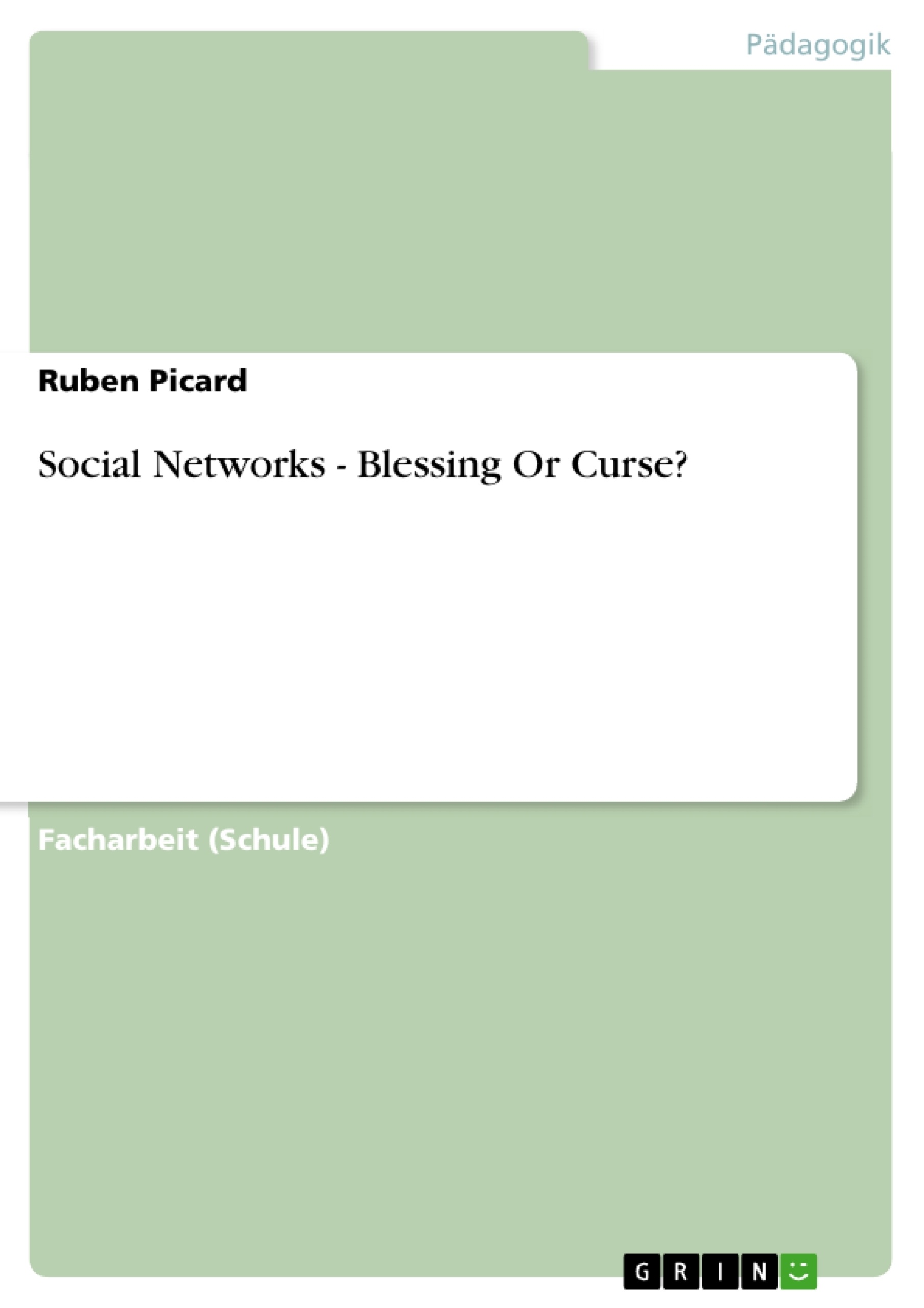In the past few years a great number of social networks have appeared on the internet. Though the term “social network“ seems to be something new, something, associated with the world wide web and new technologies, social networks have existed ever since men have. Any interacting group of people can be considered a social network and is defined by the relationships between the individuals. That makes it really interesting to find a system that was part of our lives from the cradle of humankind, being faced with such a young invention called the internet.
What they all have in common is that they try to connect people by providing a platform meant to help users communicate in the most convenient and entertaining way possible or by providing a matchless network service that specialises in a particular area (e.g. music or news).
I decided to write a research paper about social networks on the internet because I could hardly distinguish whether my own use of such services is either beneficial or reprehensible. These days, new services on the internet that promise to be very entertaining or apparently have a high potential to improve or simplify the way we work and communicate seem to be very attractive to a wide range of internet users. While some people are quite sceptical about online services like social networks, others tend to use them without even considering any potential risks. Are they just blinded by the revolutionary possibilities based on the “Web 2.0“, or do we actually not have anything to fear?
The social network Facebook will serve as my basic example for the analysis of social networks because it is the most used and thereby most discussed social network on the world wide web; its structure also generally represents other, similar networks.
These social networks are surprisingly entertaining, especially for younger people. But can we trust a completely new way of communication? Considering that almost all social networks are completely free, the question comes up how they can be financed. Do social networks help us organise our lives by providing virtual groups, calendars and event managers? Will these groups even be able to represent political interests? And what about the lack of privacy social networks possibly promote?
Among other aspects, I want to deal with the above-mentioned questions by analysing the way social networks operate and weighing the benefits and disadvantages of social networks on the internet.
Inhaltsverzeichnis
- Introduction
- Introducing Social Networks On The Internet
- Development And Intention Of Social Networks
- How Social Networks Influence Our Lives
- Business Of Social Networks
- Weighing The Benefits and Disadvantages Of Social Networks
- Potential Of Social Networks
- Dangers Of The Use Of Social Networks
- Consequences Of Giving Personal Information
- No Privacy
Zielsetzung und Themenschwerpunkte
Die Forschungsarbeit untersucht die Funktionsweise von sozialen Netzwerken im Internet und analysiert deren Vor- und Nachteile. Sie befasst sich mit der rasanten Entwicklung und den unterschiedlichen Intentionen von Social-Media-Plattformen sowie deren Einfluss auf unser Leben.
- Entwicklung und Intention von sozialen Netzwerken
- Einfluss von sozialen Netzwerken auf unser Leben
- Geschäftsmodelle von sozialen Netzwerken
- Potenziale und Gefahren von sozialen Netzwerken
- Datenschutz und Privatsphäre in sozialen Netzwerken
Zusammenfassung der Kapitel
Das erste Kapitel führt in das Thema „Soziale Netzwerke im Internet“ ein und stellt die Relevanz des Themas dar. Das zweite Kapitel erklärt die Funktionsweise von sozialen Netzwerken und beschreibt die grundlegenden Elemente einer Social-Media-Plattform. Das dritte Kapitel beleuchtet die Entwicklung und die Intentionen von sozialen Netzwerken, wobei die drei Phasen der Evolution von sozialen Netzwerken erläutert werden. Das vierte Kapitel untersucht den Einfluss von sozialen Netzwerken auf unser Leben und stellt die „Three Degrees of Influence Rule“ vor. Das fünfte Kapitel beleuchtet die Geschäftsmodelle von sozialen Netzwerken und analysiert die unterschiedlichen Einnahmequellen. Das sechste Kapitel behandelt die Vor- und Nachteile von sozialen Netzwerken und diskutiert die Potenziale und Gefahren der Nutzung von Social-Media-Plattformen.
Schlüsselwörter
Soziale Netzwerke, Internet, Facebook, Entwicklung, Intention, Einfluss, Geschäftsmodell, Potenziale, Gefahren, Datenschutz, Privatsphäre, „Three Degrees of Influence Rule“.
- Arbeit zitieren
- Ruben Picard (Autor:in), 2011, Social Networks - Blessing Or Curse?, München, GRIN Verlag, https://www.hausarbeiten.de/document/171563


